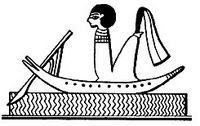Refugee women feel healing of creative arts
Keung asks, what happens when you get a paintbrush, a camera and words in a new language?
"For a group of women and girls waiting to be granted asylum in Toronto, the fruit of that experiment last summer was a remarkable 40-page book of photography, painting and poetry, plus an exhibit at the Tinto Coffee House that will go on to Toronto City Hall and Metro Hall in June during a celebration of refugee rights.The women's book Shukar Lulugi , funded by the Toronto Arts Council and Canada Council for the Arts, can be purchased for $10. Email info@sojournhouse.org or call 416 864-0515 ext. 242. The exhibit is free to view until Thursday at Tinto Coffee House on Roncesvalles Ave. It moves to Toronto City Hall April 3, 2008; Toronto Metro Hall on June 4, 2008.
But more than that, for these women the opportunity to express themselves artistically relieved stress and helped heal the trauma of being displaced from their homelands, giving them a new sense of dignity and self-confidence.
The book, Shukar Lulugi – "Beautiful Flower" in the Romany language – came as a surprise even to the 17 participants, age 12 to 56, because none of them originally wanted to take part in the project organized at the Sojourn House refugee shelter.
That changed when they started learning about drawing, painting, writing and photography from community artists with Toronto's Red Tree artists' collective.
"I thought my life ended when I left my country. I was constantly depressed. The snow here didn't help," said Margarita Valdez, a Mexican lawyer who sought refuge in Canada with her husband and their 14-year-old son in 2006.
"But creative art has awakened my feelings again. I realized that after all the snow, everything would be born and grow again."
[SNIP]
"In their painting class, the women were asked to draw landscapes from the rooftop of the Queen St. shelter, or to paint their hands or favourite fruits, like Melena Yohannes' "ugly mango."
"Many of us never painted before. We aren't Picassos, but it doesn't matter," said Yohannes, 21, who fled Eritrea under official persecution because of her Pentecostal faith. "Creative art is about expressing ourselves. It's a huge relief for us to have a few hours for ourselves, to forget about all the stress and problems we had in our lives. And we got to make some new friends, too."
Standing beside a framed photo she took of her toddler son, Adam, Jamila – a Moroccan who fled an abusive husband and asked that her last name not be used – said she never thought she could write, at least not in English. But she enjoyed the simple wordplays in the writing class.
"The project was a therapy for me. As refugees, it's hard to let it out. It's nice to know that I wasn't alone in my tragic experience. It's not like we're trying to forget about the pains inside us. It's about sharing those feelings and stories," said the 30-year-old, all smiles now.
Labels: Creative Arts, Thomas Moore


